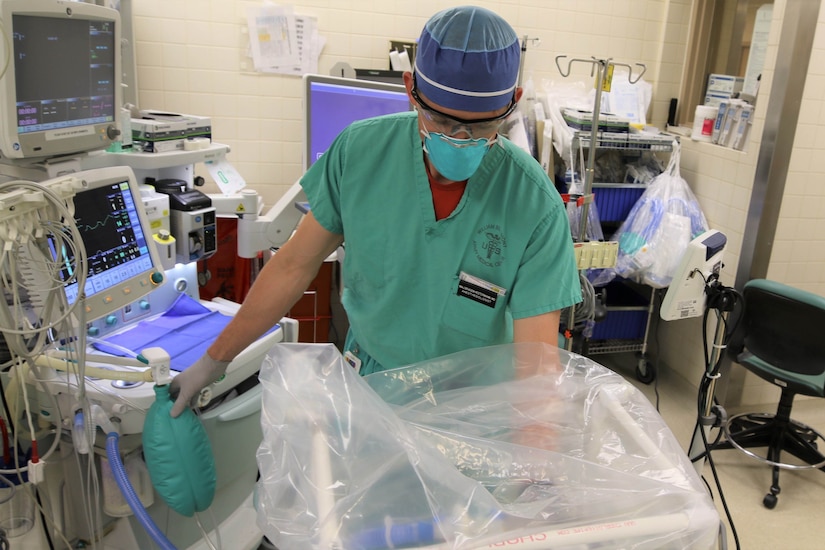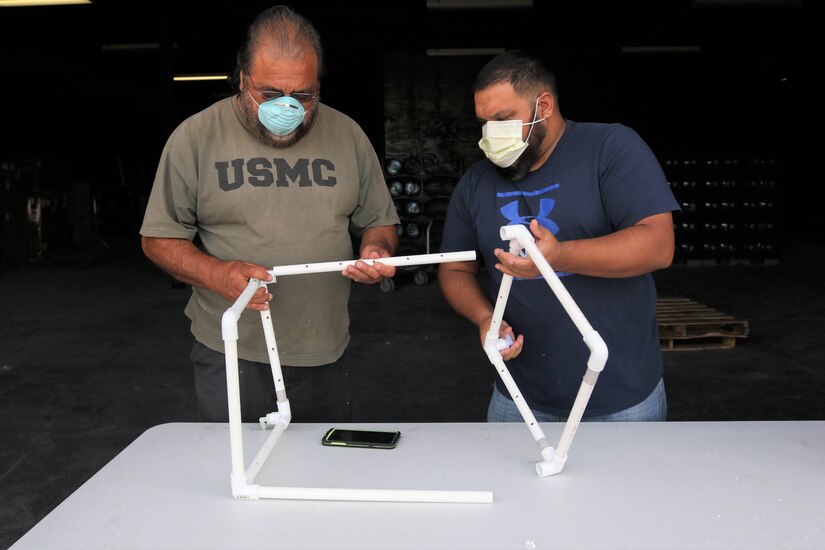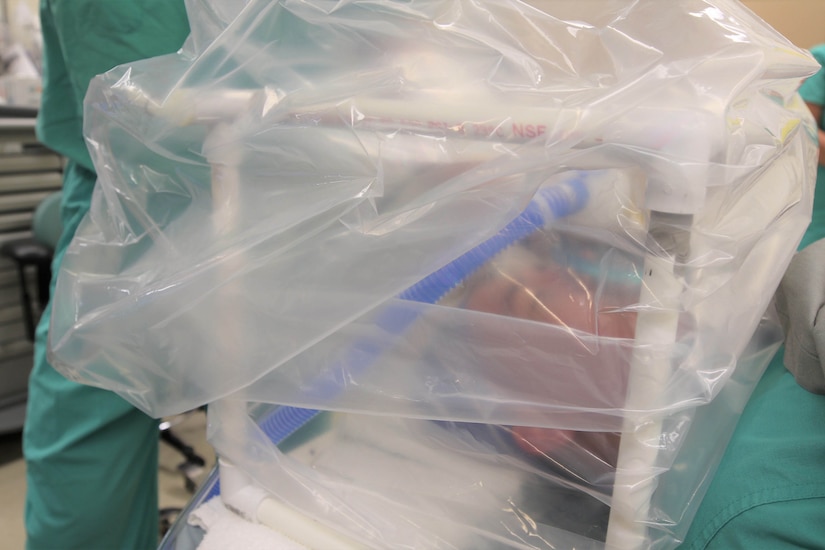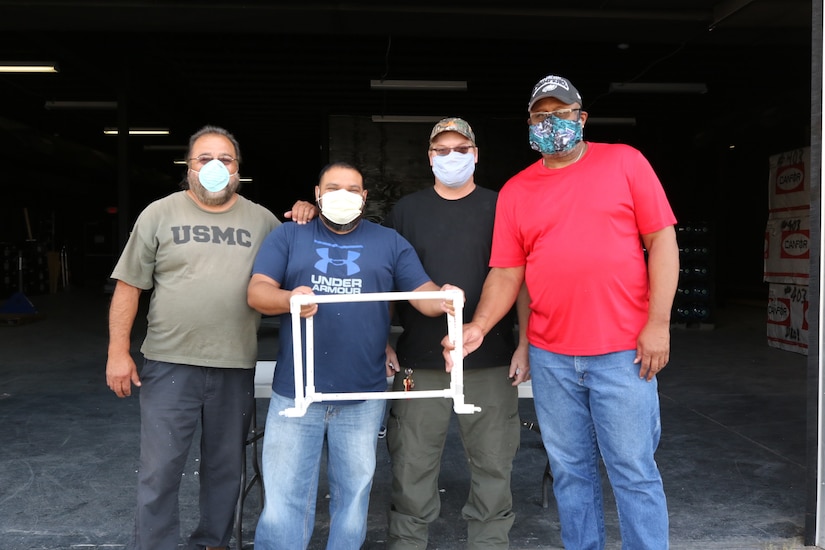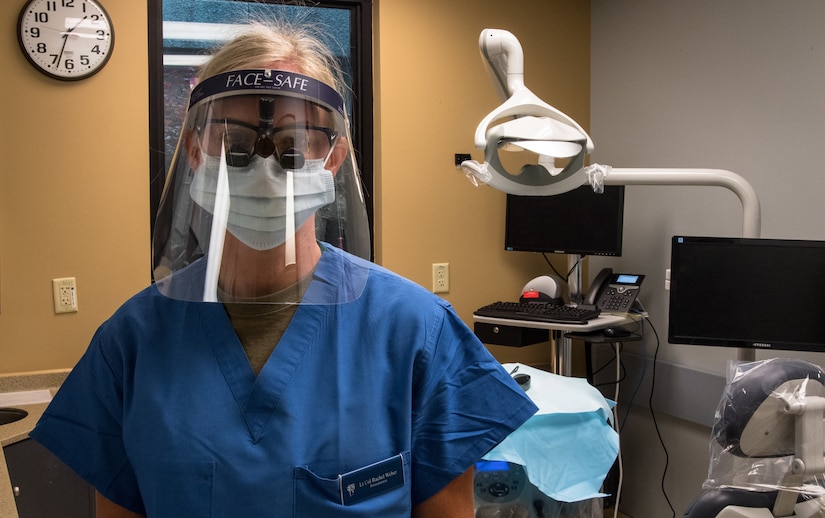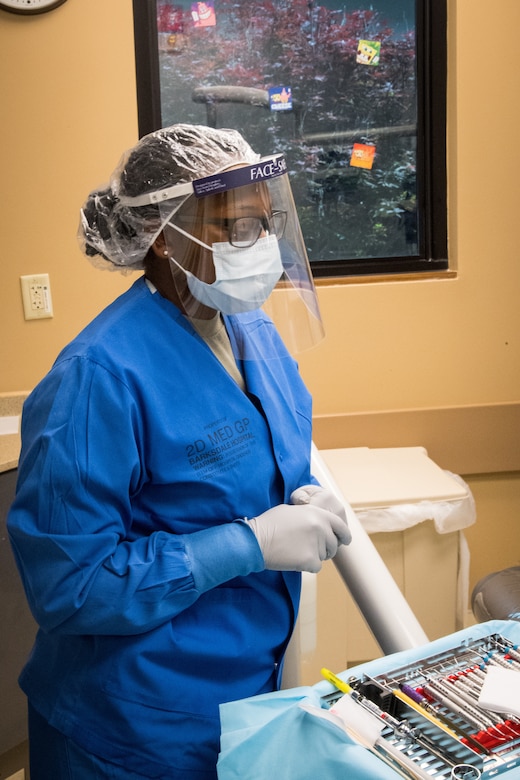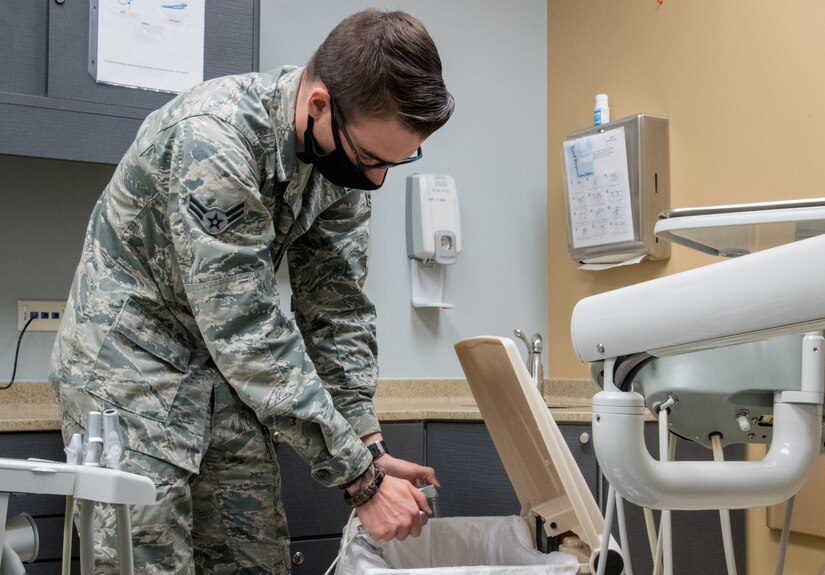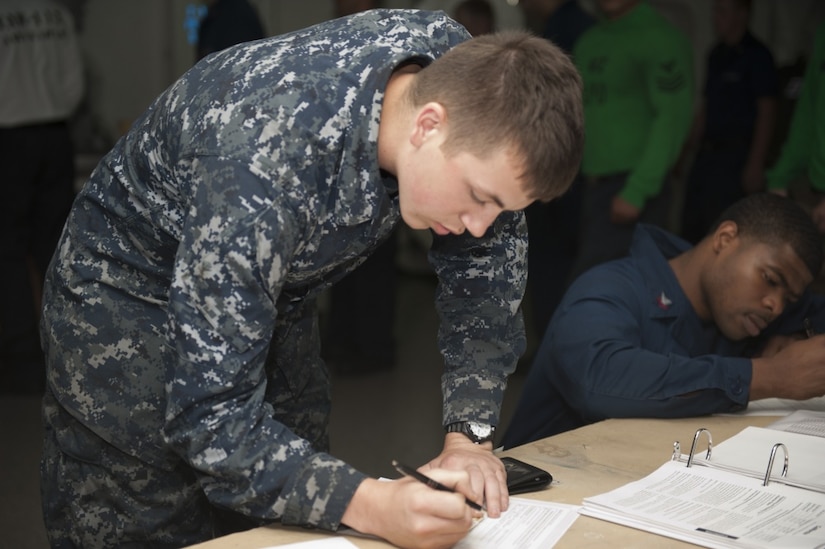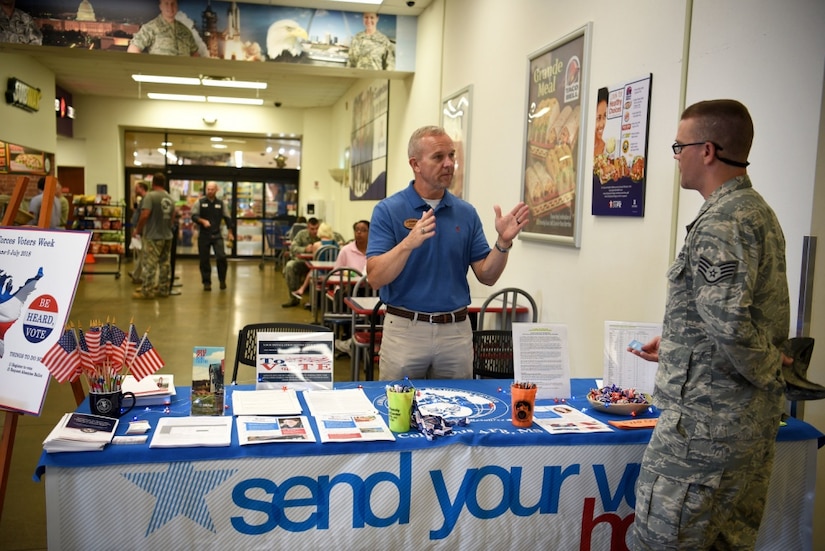At the crowning of this year's Zama Middle High School royal prom court at Camp Zama, Japan, all four members stood alone, socially distanced, to put on their own crowns or tiaras.
With this year's prom canceled due to COVID-19, there was no dancing, no crowd and no fancy gowns or tuxedos, but the members of the court still smiled, nicely dressed and thankful the school managed to maintain a few prom traditions despite the ongoing pandemic.
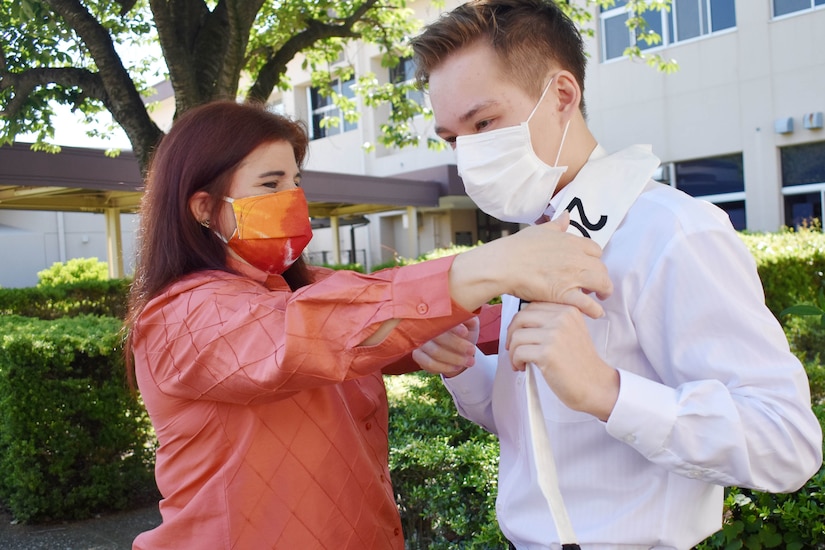
Lauren Rosa, an art teacher and the prom organizer, led the organization of a modified version of the traditional prom that included party favors, the crowning of an elected prom court and the chance for photos and a video.
"It's important to finish what you start," Rosa said. "What's going on doesn't have to, per se, define your whole academic career or your entire senior year. It stinks. It's not a great way to end, but something, in my book, is always better than nothing."
This year's prom court consisted of Jason Giles, prom king; Leah Sakamoto-Flack, queen; Alexander Ala, prince; and Aika Davis, princess. They individually put on their crowns and tiaras while maintaining social distancing during a small ceremony in a sunny garden at the school May 29. Lucinda Ward, the Camp Zama school liaison officer, sewed the sashes and donated them.

Sakamoto-Flack, a senior, said she appreciates the effort everyone put into the modified prom.
"I think it's the best they could do under the circumstances, and I think it's still honoring the seniors because this is their last high school event," Sakamoto-Flack said. "They still did a really good job with everything."
Davis, a junior, said she had been looking forward to attending this year's prom before its cancellation but was glad organizers found a way to maintain some of the traditions.
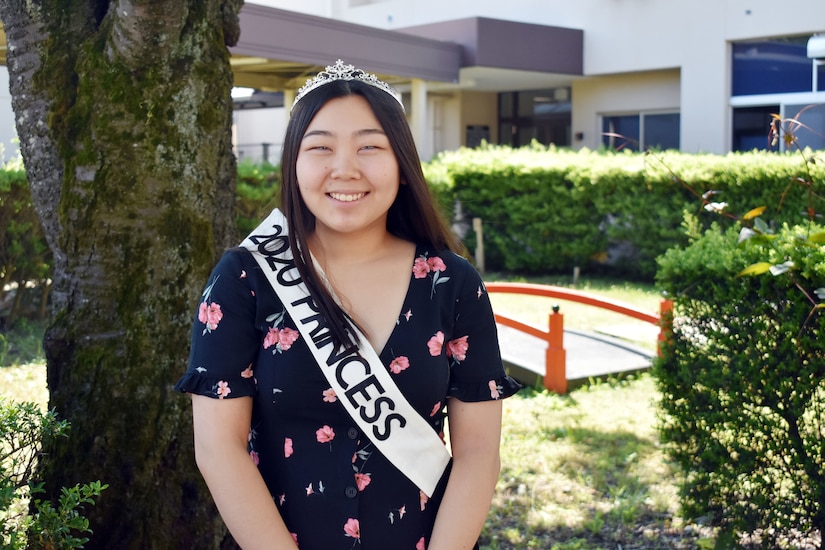
"I went to the prom my freshman and sophomore years, and I'm going to miss the whole dancing part, but I think it's nice that they're doing something for the kids," Davis said.
Giles, meanwhile, said he found one aspect of this year's prom better than last year's: It was outside. Giles, a senior, said he was glad organizers held the ceremony outside and in person instead of online.
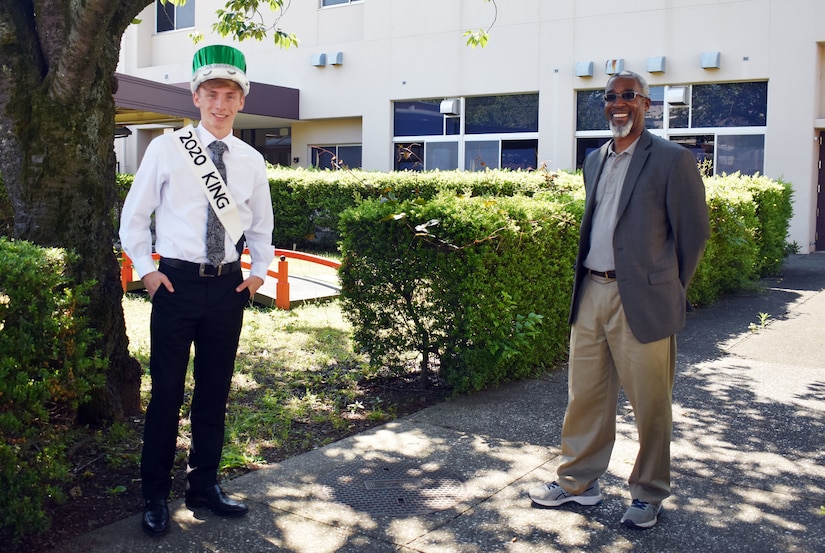
Ala said he recognizes the school could not hold a full-fledged prom this year with COVID-19, and appreciates all they did instead.
In addition to the court members, the student body also had a chance to participate by voting online for the court and picking up Botanical Bloom Prom 2020 party favors at the school. Of the 138 students eligible to vote for the court, 100 did, Rosa said, and she was happy with the turnout.
All four members of the court said they were surprised their peers had voted for them.
"I wasn't expecting this and was really surprised," Ala said, echoing similar sentiments from all three other members of the court.
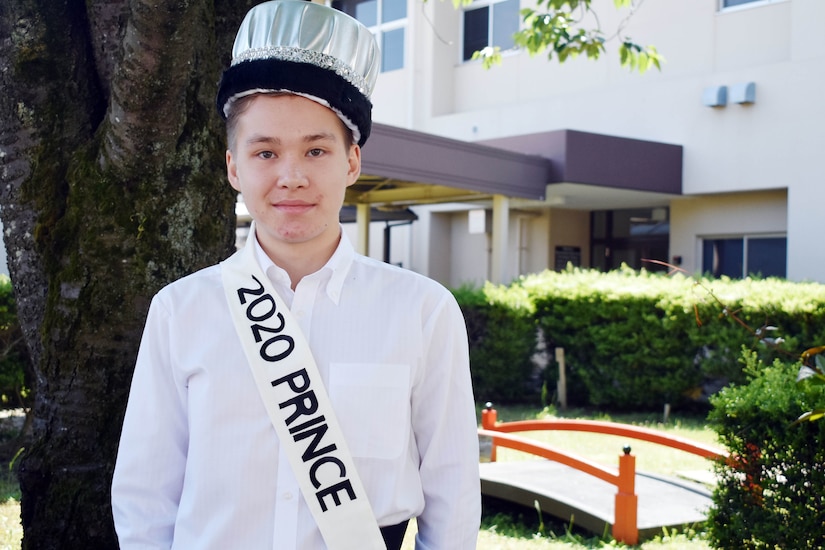
Rosa said she had organized nine other proms at the school she used to work for in Florida, so she knows how important proms are for students.
In addition, however, continuing with a modified prom teaches a greater life lesson: in the face of adversity, it is important to keep going, Rosa said.
"[COVID-19] is one challenge, one disappointment in your life, and if it's the only one, fantastic, but that's probably not likely," Rosa said. "You just have to put one foot in front of the other and just try."
Ward agreed.
"Our traditions do not have to stop based on a pandemic; they just need to be modified," Ward said. "Recognizing prom allows the youth to still experience tradition through a different set of glasses."
Ward said she donated the sashes because sewing is her favorite pastime, and when she arrived at Camp Zama nine months ago, the community embraced her.
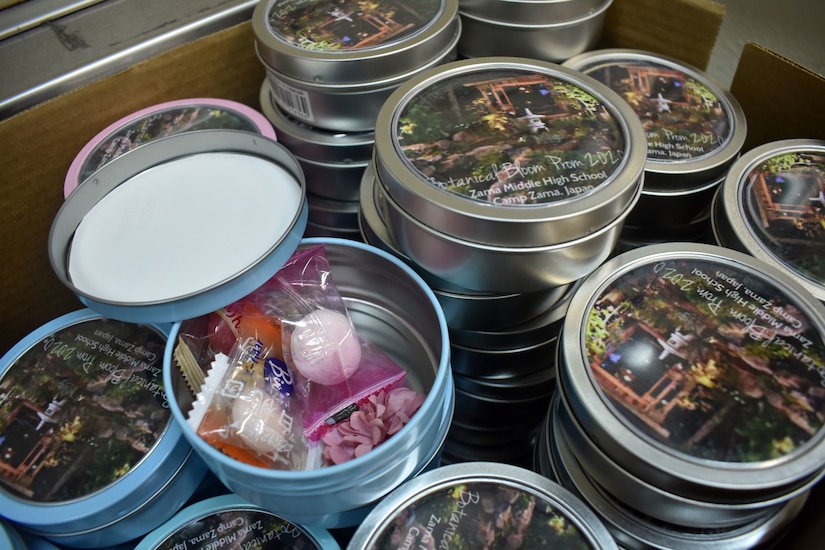
"Making the sashes is just my way of thanking all of the youth for welcoming me as the school liaison officer," Ward said. "This is a great community."
Wayne Carter, the principal of Zama Middle High School, said the modified prom went well and he thanked Rosa, Ward and Camp Zama's Family and Morale, Welfare and Recreation for making it happen.
Not only did the prom organizers step up this year, so did everyone associated with the school, Carter said.
"This has been a very unprecedented year, but what we've seen from the students, from the families, from the teachers, it's just phenomenal," Carter said.
(Winifred Brown is assigned to US Army Garrison Japan.)
